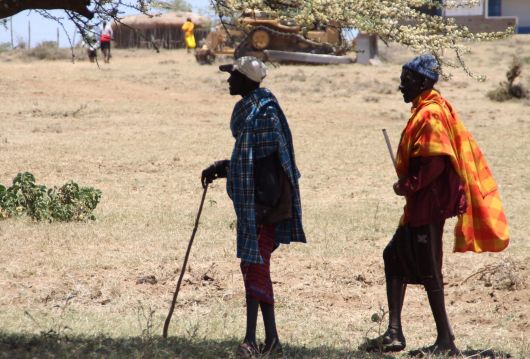28/09/2018 - Why people matter: moving from rhetoric to practice in public engagement

In 2017, the owner of a private ranch in a fast-growing small town in Kenya was killed. Attacked by communities that surround his fast growing ‘little city’; a community that has felt left behind; forgotten and whose rights on access to natural resources seem to have been infringed upon, at least according to the community. Climate change impacts, resulting in severe and extreme droughts led to diminished resources for communities that live side by side with the rich sprawling privately run commercial property.
"Numerous attacks have taken place in drought-stricken Laikipia region in recent months as armed cattle herders searching for scarce grazing have driven tens of thousands of cattle onto private farms and ranches from poor quality communal land", BBC.
When development is happening at this pace, in an environment where there is a glaring difference in the access to water and land, how can investments by the private sector ensure that there are social contracts with communities, and that the environment in its management of water and land use are equitably shared?
The Partners for Resilience Alliance, led by the Netherlands Red Cross society is working with governments, communities and the private sector to find amicable and collaborative ways that the three sectors can jointly work together to ensure that there are incentives for all parties during investments. PfR applies an approach called integrated risk management that brings together various principles on civic engagement, climate and ecosystem management for effective investments: -
1. The business case for resilience- Recognising from a development/ humanitarian actor’s perspective that the private sector’s primary interest in investment is from a business perspective, and thus, sustainability issues in Development dialogues must provide clear business cases and show business value.
With this recognition, PfR asserts that putting local communities at the centre of business plans provides incentives through a healthy, economically secure society that can provide labour force, knowledge on local social issues, build trust within the community and become allies and offer solutions through indigenous structures on contested community perspectives on investments.
2. Climate risks and enterprise risk interface – there is increasing evidence that companies are moving towards implementing more environmentally responsible policies in communities where they have business interests. This is mainly directed at protecting capital assets including human capital that sustains supply chains.
Companies recognise that when tensions rise in communities where they have businesses, their capital assets suffer. In the Kenya case, not only assets where lost, but sadly human life was lost; Government lost investor confidence (albeit temporarily) and the community itself lost opportunities for companies to further invest.
The complexity with the Kenya case in question is the convergence of several issues on how climate risks interface with the company’s finances, human resources, the need to comply with social norms, and the enterprise risk that saw company assets destroyed by a community-turned hostile because of what appears to be inequality in access to resources.
While huge financial investments for companies lie in mitigation, there is an opportunity that can be optimized for engagement on community resilience through addressing vulnerability to climate risks or negative business impacts (e.g. CO2 emissions, deforestation, disaster response).
3. Public Engagement and Accountability- to address some of the risks mentioned above, there must be a robust system for public engagement to facilitate accountability of all systems. In development, and particularly from an investment perspective, engagement of communities at all levels of investment- at planning, during implementation and after (through feasibility studies) must remain core in the Sustainable Development discourse. Communities are at the frontlines of interacting with businesses, and regulatory frameworks designed to hold all stakeholders accountable are only as effective as far as community knowledge exists on those instruments. Without this knowledge, communities can be left in the latch and accountability systems fail, especially in States with weak governance systems.
4. PfR has a unique skill in mobilising communities on issues of climate risks, ecosystem management and community resilience, has built confidence with communities through work done with local civil society organisations, collaborates with governments on developing risk reduction policies, and thus links to dialogues with the private sector and connects the three worlds of community, private sector and governments.






